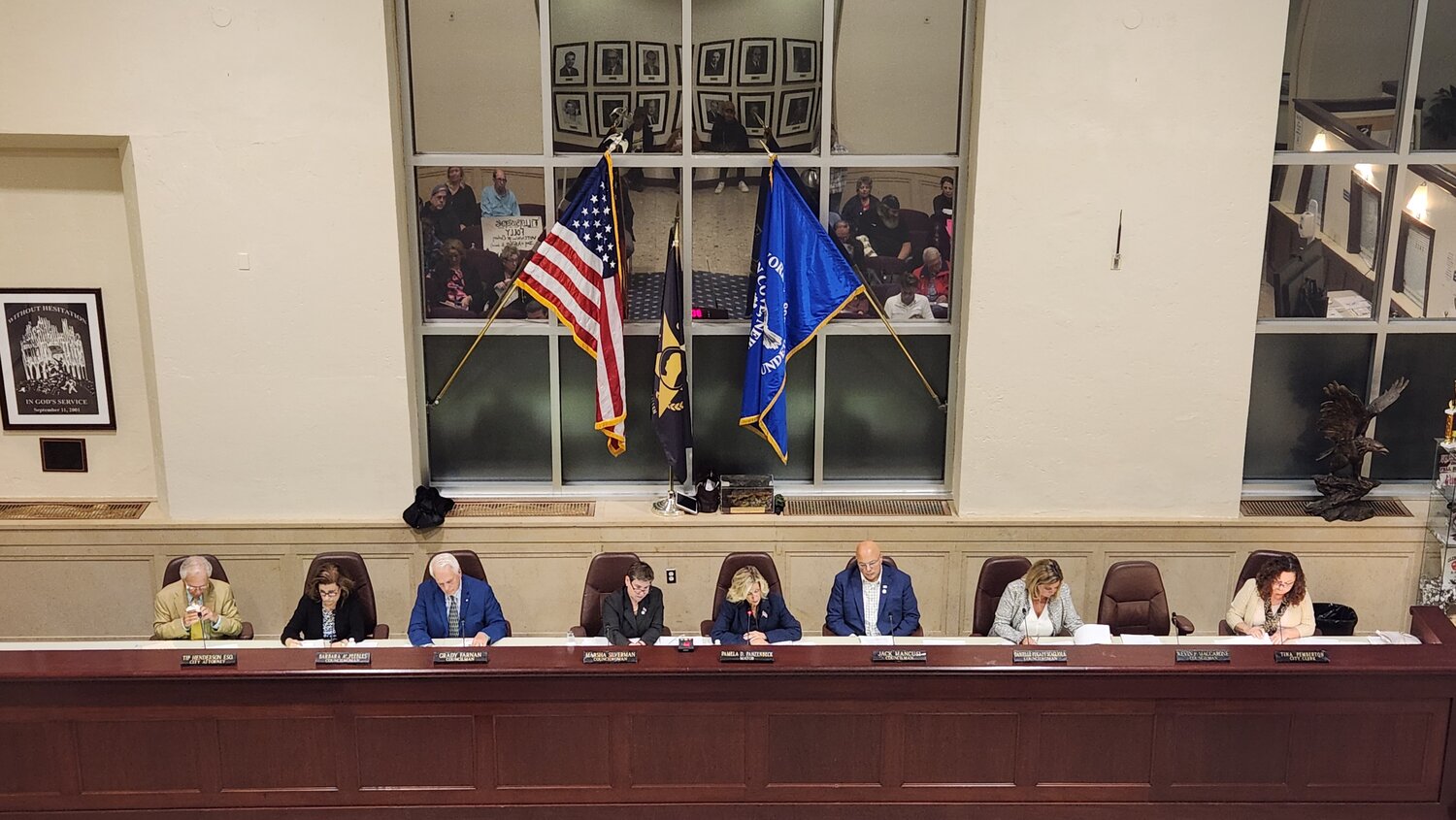Glen Cove City Council revisits term limit discussion
The City Council revisited the topic of term limits during a pre council meeting on Oct. 3 where Mayor Pamela Panzenbeck proposed a town hall for December or January to discuss the city’s charter regarding eligibility, terms, compensation, and oath for city officers.
Officials debated whether to hold a public hearing last July to discuss the city’s charter regarding eligibility, terms, compensation, and oath for city officers. The agenda item was tabled after a heated debate among all council members.
During the July meeting, Councilwomen Danielle Fugazy Scagliola and Marsha Silverman both agreed that a public hearing, meant to gather input, should have remained open indefinitely until such a decision was made.
The city’s code states that each officer, unless otherwise provided in the charter, shall be elected for the term of two years from and including the first day of January succeeding his or her election, and until the election and qualifications of his or her successor.
The matter has been discussed for decades, but in 2018, Glen Cove’s policymakers heard a proposal from Carolyn Wilson of the Charter Review Committee to study whether to make certain fundamental changes to the city charter, including amendments regarding council members’ term lengths, term limits and whether the terms should be staggered. That commission has since expired its term.
Under normal circumstances, New York state municipal law gives charter commissions the power to put amendments on a ballot measure without the governing body’s approval. But the then City Attorney Charlie McQuair — who, since the commission’s formation in 2015, had been advising it on legal matters — didn’t realize until late July of 2018 that it had passed a two-year deadline to propose referenda, and would have to be reauthorized by the council if it were to exercise that power in November 2018. That left just one meeting for the council to vote on the commission’s fate before an early-September deadline to submit ballot measures to the Nassau County Board of Elections.
After studying the structures of other municipalities from 2015 to 2018, deliberating and debating the merits of important changes to city government — whether to implement term limits or lengthen terms to three or four years, or stagger terms to avoid a complete turnover of the mayor and council in a single election — the commission was prepared to put these charter amendments up to a public vote, and let the people decide whether to change the structure of their government or keep it the way it is.
The proposals would have lengthened the mayoral term to four years from two and councilmember’s’ terms to three years from two. The referendums also would have imposed limits of three consecutive terms and staggered councilmember’s’ terms.
During the Oct. 3 meeting, Councilman Jack Mancusi said he’s against anything that gives council members over a two-year term, but said he hasn’t heard any outcry from the public about the topic.
“The people have a right to organize themselves to get this done,” Mancusi said. “So if it’s that a hot topic, and everybody wants to talk about it so badly, let them organize them and create their own commission.”
City attorney Tip Henderson said he sees a positive side to shorter terms.
“Here we are with a five-to-two-council, the minority will be putting the majority’s feet to the grindstone,” Henderson said. “Before the election, that’s something positive, I believe. You get seven people in one party for four years, I’m a little concerned.”
Silverman said she believes shorter terms make for shortsighted decisions since officials can potentially focus on their campaigns. She also believes that shorter terms take away from an official’s years of experience, forcing new and inexperienced candidates to have to learn much of the city’s history in a short amount of time.

 80.0°,
Partly Cloudy
80.0°,
Partly Cloudy 




